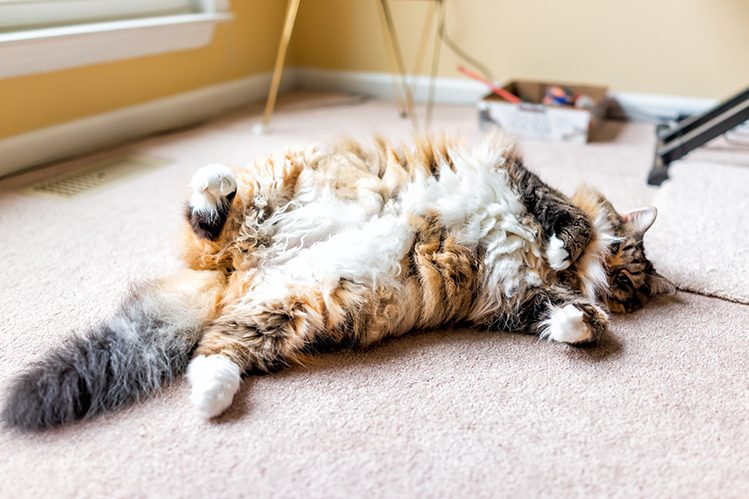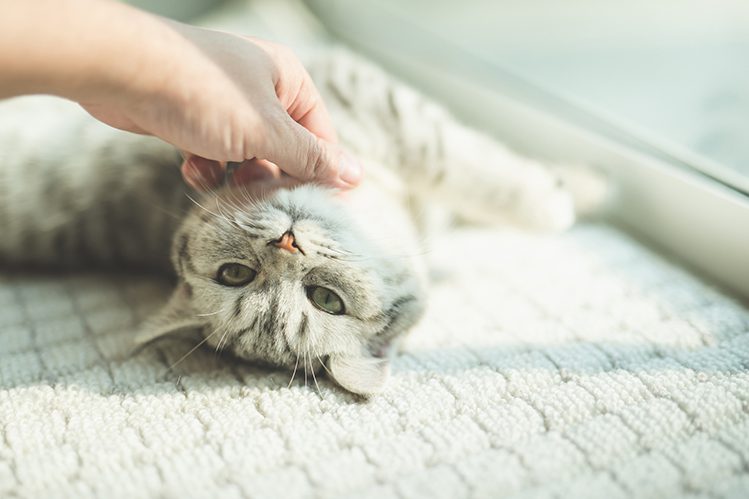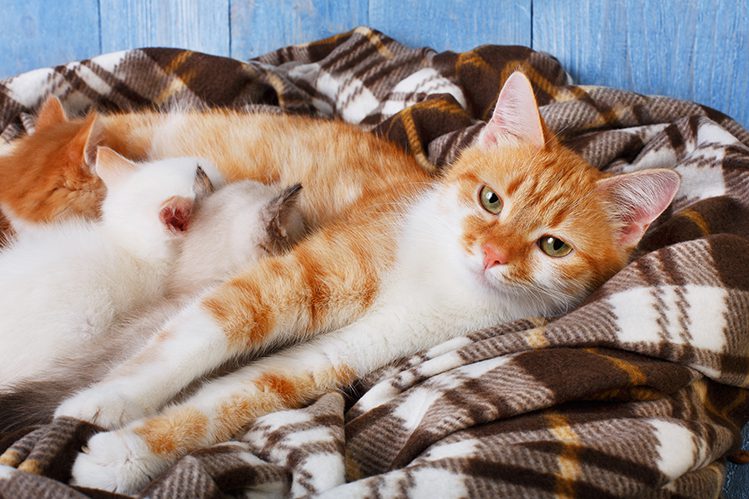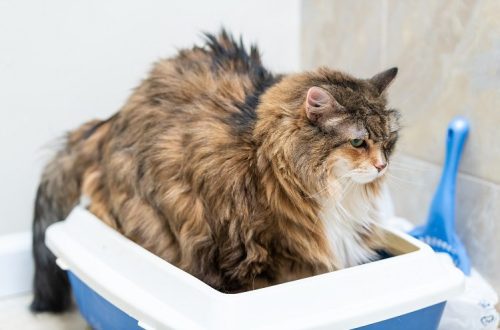
How to care for a pregnant cat?
Will there be little kittens in your house soon? Congratulations! Smiles and happiness are guaranteed! But before the fluffy little ones are born, you need to take good care of their mother. Pregnancy is not a disease, but caring for a pregnant cat has its own nuances. About them in our article.
Pregnancy in cats lasts a little over a month, approximately 9 weeks. This is a responsible time. The owner should show more attention to his pet and surround her with care. The quality of care affects the well-being of mother-cats and babies, so it is important for any owner to know what to pay attention to in the first place. Our 10 simple but important rules will help build the right care for a pregnant cat.

1. Diet. The body of a pregnant cat needs more energy, because now kittens also need it. Choose a special balanced food for pregnant cats of supremium class. It will provide your ward with all the nutrients she needs. You will give the same food to the cat during lactation. Look for lines labeled “for pregnant and lactating cats” and make sure that the first ingredient in the composition is meat.
2. Physical activity. Even if your cat is a perpetual motion machine, during pregnancy it is better to reduce the level of activity. Don’t encourage your cat to run around the house like crazy and jump on cupboards.
3. It is better not to combine stress with pregnancy. It is better to postpone repairs in the apartment or moving until the kittens are attached and the cat is fully recovered. Protect the cat from irritants so that she does not have to be nervous.
4. Limit contact with children. Even the most careful child can accidentally frighten or injure a cat. Contact between a pregnant pet and a child is best minimized.
5. Limit contact with other pets. If there are other animals in the house, try to let them near the pregnant cat as little as possible. It doesn’t matter if they were friends before. New instincts wake up in the expectant mother, and her behavior, as well as her reaction to others, can be unpredictable.

6. Give your cat more freedom. Let her live in her own rhythm, do not disturb her needlessly. She spends a lot of energy on bearing offspring and deserves a “vacation”!
7. No self-walking! Self-walking is dangerous for any cat, especially for a pregnant one. Don’t leave your cat unattended!
8. If the cat does not yet have “its” place in the house, it’s time to create it. Get a special bed with sides and place it in a secluded place, but always at floor level. Help the cat build a “nest” where she is most likely to give birth to kittens.
9. The cat must be supervised by a veterinarian. He will monitor the health of the expectant mother, give more precise instructions for care, depending on the condition of a particular cat, and control childbirth.
10. A pregnant cat should not be vaccinated, treated for parasites and given pills. The only exceptions are cases when medicines are prescribed by a veterinarian.

But the main thing is to give the cat as much attention as possible, be affectionate, caring and inspire calmness in her. Pregnancy and childbirth are a lot of stress for a pet, and she will be grateful to you for a strong master’s shoulder!





